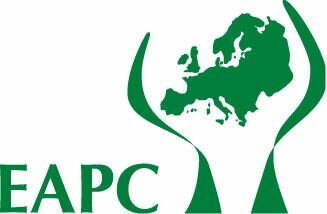|
European Association for Palliative Care EPSO project Please note that these are the preliminary documents and should only be completed by "Host Centre applicants" from the 5 countries who are involved in the Taskforce Pilot project; Belgium, The Netherlands, France, Ireland, Switzerland and the U.K. The full on-line application will be available later in 2010. This is because we are currently upgrading the website and its technical support and we expect it to be ready by this date. This application is a trial to see how it may work in practice and we thank you for your co-operation in this. |
||||||||||||||||
|
Martine De Vlieger (Chair), Belgium, Prepared in accordance with standard style guides and in accordance with good practice guidelines for preparing material for the web.
EPSO – a project supported by The European Association for Palliative Care Welcome to the EPSO project information pack On behalf of The European Association for Palliative Care [EAPC], we would like to thank you for choosing to participate in this project and hope that it will prove helpful in developing a European-wide clinical practice forum for practitioners in palliative care. This information has been prepared by a group of European palliative care educators and managers with a specific interest in developing links between professionals across Europe, through the exchange of learning and knowledge. The information that you will find here has been obtained from the collective member associations of The European Association for Palliative Care and represents a broad spectrum of available clinical learning opportunities. At this point, palliative care centres within the following countries have agreed to take part:
We expect that it will grow and develop over time until we have a living network of centres that can offer applicants a “Stage/placement” opportunity. 1. What does ‘stage’ mean? “Stage” is a term used in many European countries to mean a period of clinical experience, usually undertaken as part of an academic training course. In English, we refer to this as a clinical placement and for the purposes of this document both terms will be used. In this project, our focus is on developing the “stage” opportunity, rather than offering an academic training course. However, it may be possible for you to include some academic study as part of the “Stage”. That will be decided by you and the centre you choose to visit. 2. What is the benefit of undertaking a stage/placement? Palliative care is a new and developing practice throughout Europe. Clearly, Europe is a title that covers many different countries with wide-ranging views and life experiences. There are many different palliative care models which may be dependent on local developments, Government policy, finances and, of course, culture. A stage/placement will enrich your global understanding of palliative care, what it brings to communities and how you, as a clinical practitioner, can make a difference to people’s end-of-life care. You may have a specific area of palliative care practice in which you have an interest but you are unable to gain this experience in your own country. A stage/placement will also enable shared learning and knowledge development to take with colleagues working in a different setting, culture or country, opening the doors for future collaboration in education and research initiatives. Who is the stage/placement aimed at? This project is based on a fundamental belief that the sharing of expertise is beneficial to the development of palliative care. Therefore, we would consider it important that applicants wishing to undertake a stage/placement should have a level of experience in the field of palliative care which they can share with colleagues from other countries. We would expect that the applicants would have at least undertaken a basic (Level A) course and probably are working at, or working towards, Level B or Level C in practice. Is there anyone for whom the stage/placement is unsuitable? The stage/placement is not intended for people with an interest in palliative care who do not currently have a palliative care education or practice background. We would encourage you to seek learning opportunities in your own country which will give you the basics that you need to fully benefit from a stage/ placement. How do I follow the information now? The information from now on is divided into three sections: Section one – for the Applicant In this section, you will find more information on the goals and objectives of a stage/placement project, important issues such as definition of terms, roles and responsibilities of the Applicant and the Host Centre, contracts, finances and how to make the stage/placement work for you. Section two - for the Host Centre In this section, you will find information on the Host Centres, the types of experience they can offer you and how to contact them. Please remember that although we do everything possible to ensure that the information offered here is up-to-date and revised on an annual basis, the EAPC cannot take responsibility for any changes that may occur and each Applicant is strongly advised to make sure that the centre they apply to can offer the experiences they seek. Section three – Application Forms In this section, you will find the application forms to complete and send to your chosen centre. We hope you find a great stage/placement which will help you both personally and professionally in your palliative care career. Good luck! |
|||||||||||||||||
